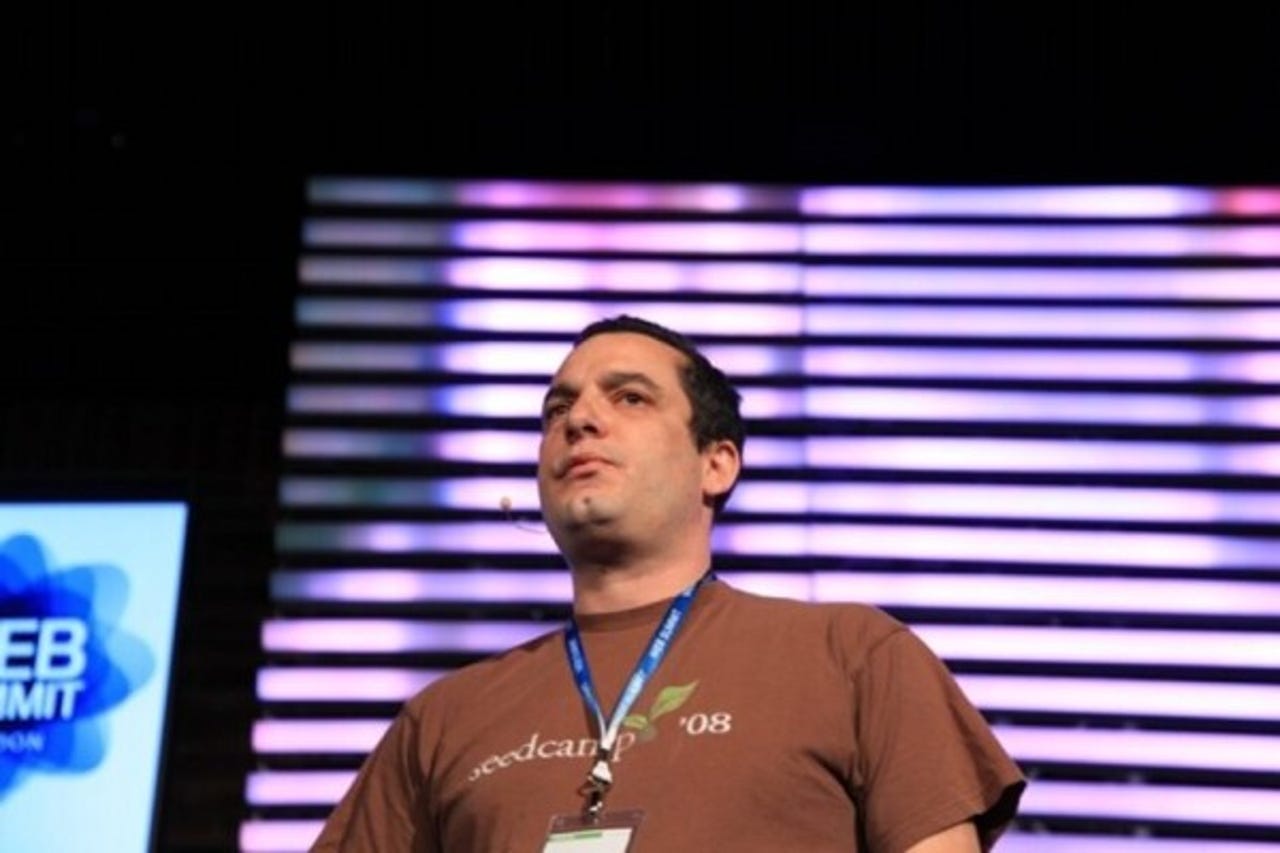'We are the 8 percent' but the city isn't backing the internet economy, says Saul Klein

In a rousing keynote at today's London Web Summit, venture capitalist Saul Klein said the UK is the world leader in moving to an internet-based economy, but city financiers are not investing in our internet future. "We are the 8 percent," he said, and "We shall not rest until we are all 8 percent or more!"
Klein derived his "8 percent" slogan and #demand8 hashtag from Boston Consulting Group figures for 2010, "the latest we have". These showed that the UK's internet economy accounted for 8.3 percent of GDP, which was the highest in the world. The UK was followed by South Korea (7.3 percent), China (5.5 percent), Japan, and the US (both 4.7 percent).
Klein said the internet economy is already bigger than education, health, and construction as a percentage of GDP, and not far behind the financial services industry.

This was good, but "there's something wrong in the city", said Klein. The UK's financial industry ("the city" for short), managed funds worth £658 billion, but it isn't being used to back the UK's digital industries. "Why is this money sitting on the sidelines of the internet economy?" he wondered.
Klein pointed out that US giants such as Apple, Amazon, eBay, Google, and Facebook are generating £15bn worth of revenues in the UK.
Some established British companies are successful in the digital economy, said Klein, and he cited Pearson publishing (33 percent digital) and WPP advertising and marketing (30 percent) as success stories. Tesco, by contrast, is making only 6 percent of its sales online, "but at least they could answer the question", Klein said. Not all supermarkets could or would.
To build a "balanced internet economy", Klein reckons that all the UK's quoted businesses should get to at least the "8 percent" level, and be prepared to explain why they have not reached it. However, he would prefer quarterly monitoring, so that investors can act accordingly: "celebrate the champions and short the laggards". He said: "No one wants to be the next Kodak or HMV."
Of course, the "8 percent" slogan is already out of date. Klein said the internet economy should contribute 12.4 percent of the UK's GDP in 2016, when it would be worth £225 billion to the economy.
Early in his keynote, Klein had pointed out that Europe's economy is doing very badly, and suffers from very high youth unemployment. The unemployment level for under 25s is about 18 percent in the UK, 57.6 percent in Greece, and 56.5 percent in Spain. Young people need to be given the skills and encouraged to contribute.
Failure to engage with and invest in the new internet economy is not just an immediate problem, but also one with long-term consequences.
Klein is a London-based venture capitalist at Index Ventures and co-founder of Seedcamp, a startup accelerator. He has been involved with investing in a lot of early stage internet companies including MOO, Last.fm, Tweetdeck, AlertMe, Chartbeat, GlassesDirect, MyHeritage, Soluto, and Songkick. Earlier, he worked for Skype, and he founded what is now Lovefilm International.
While Klein must be applauded for putting his money (and other people's money) where his mouth is, the British are a cynical lot. The UK has been a world leader in other high technology industries. These include computing — where LEO (Lyons Electronic Office) was the first business computer — and aviation, where the De Havilland Comet was the first commercial jetliner in production. Converting innovation into large-scale industry is a different matter, but if the UK fails again, it won't be Saul Klein's fault.
Update: Saul Klein has now posted a video of his keynote speech at the London Web Summit on his blog at localglo.be, along with his slidedeck at Slideshare.